Meet Jeffrey, a Dutchman I met in Chile. He a guy on a motorbike. I a woman on a bicycle. Same stretch of road. Same philosophy. How does he experience adventure, and what exactly is adventure?
Read Jeffrey’s insightful and deeply train of thoughts, a promise to the two books he has written very recently. His first book tells the story of extensive backpacking, the second book of driving a motorbike through South America.
About Jeffrey: Having visited 60 countries, and being pretty fearless by nature, his travelogue does not disappoint when it comes to delivering raw, unique stories. Backpacking can lead you to places that you never imagined ending up in.


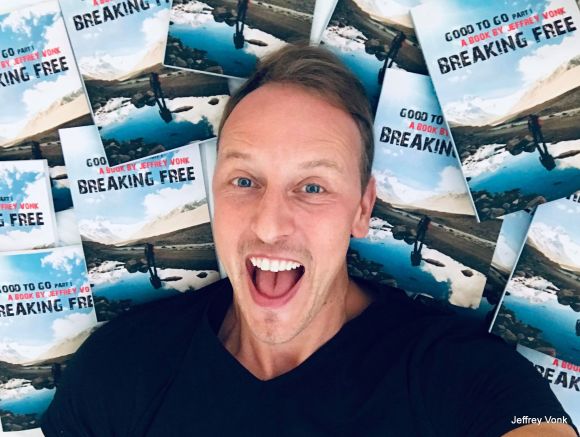
It was never his intention to get kidnapped in Syria or to be arrested numerous times. He illegally hiked parts of the Great Wall of China, solo climbed the Mont Blanc, hooked up with the Asian mafia to negotiate a smuggling deal and obtain a counterfeit driver’s license, drove 6,000 miles through uncharted terrain on a motorcycle, and enjoyed a cup of tea with scar-covered Hezbollah members among the Middle Eastern spices.
˃˃˃ To put it simply: life happens before you know it.
Join Jeffrey in his exuberant, funny and beautiful adventures and experience the world in a way few people get to see.
˃˃˃ Are you good to go

Name: Jeffrey Vonk
Age: 14-05-1980
Countries traveled through: 61
Longest stay-away on one trip: 365 days (with a short stop after, only to be followed by another year)
Most exciting country: Tibet
Most boring country: the Netherlands
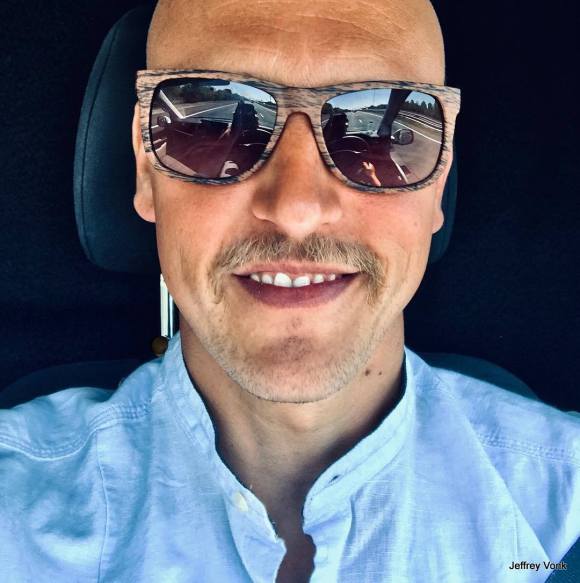
Book Titles: Breaking Free/Good To Go (part 1) & Beyond The Equator/Good to Go (part 2)
Breaking Free/Good To Go (part 1) available at: Amazon Paperback and Kindle.
Instagram good.to.go.1405 en Facebook Jeffrey Vonk en YouTube channel ‘Good To Go’.

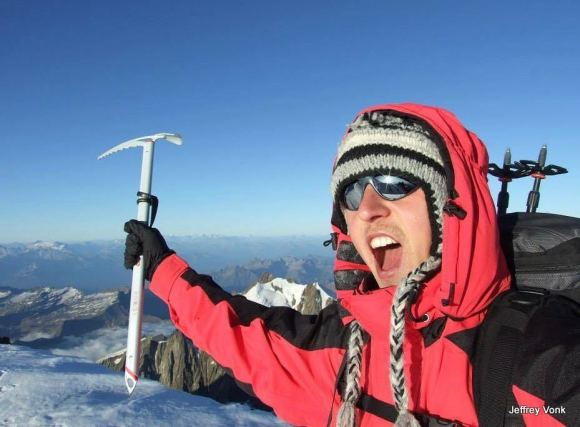
Jeffrey, it’s a pleasure to announce your book! I am always proud of people who have written their own travel story because I think it is a difficult task. Traveling opens your senses, changes perspectives and has the ability to transform and to summary this on a limited number of pages is not simple. More so because your books, you have written two, are covering not one journey but many years of traversing the world.
I met Dutch Jeffrey at the immigration office between Chile and Argentina. While cycling and solely camping, I experienced 6 weeks of rain, cold and clouds at the Chilean Patagonian side, which left me in a depression I had not felt before. Jeffrey and I talked about an hour before he sped off on his Colombian AKT Enduro and this little spark of human interaction was just what I needed!

We kept contact and I learned that the stretch of road he took was a very different experience than mine. He on a motorbike and I on a bicycle made our realities contrasting. Jeffrey described this part of the road as: ‘The drive after our meeting was rather insane. After I passed a petrified tree trunk with a diameter of about 6 meters, I noticed I lost the fly of my inner tent. Since the weather was cold I did not want to take any changes with half the remains of my tent, so I rode on. Threatening dark clouds left me no other option than to seek some sort of shelter. Accompanied by ostriches running alongside my motorbike, I drove on until sunset. Upon reaching the tarmac in an under cooled state I started to do push-ups and squats to get the blood in my frozen body running. Another thing that kept on running was my engine, in fear of letting it freeze like times before. The route I planned appeared to be snowed in, therefore I had to drive on in the hypnotizing dark until I reached Perito Moreno, a small town, where luckily I found a wooden hut to spend the night. That was a tough evening. I had to scream to keep myself warm.’
For me it meant finally out of the rain, cold and misery. My mood was lifted instantly when I reached the higher altitude and dry weather of the Argentinean side of Patagonia. In the early evening I made myself as comfortable as I could in a barn meant for sheep. I felt sorry for the few sheep I apparently banned out, now watching me from a distance, but temperatures below zero and no fur coat of my own made me make this egoistic, inconsiderate decision. The following day I kept warm by moving the pedals of the bicycle and I sang out loud while the few truck drivers passing me on the tracks received a happy wave of my gloved hand. It took me 2 full days to reach the tarmac, where another dull cycling experience began.

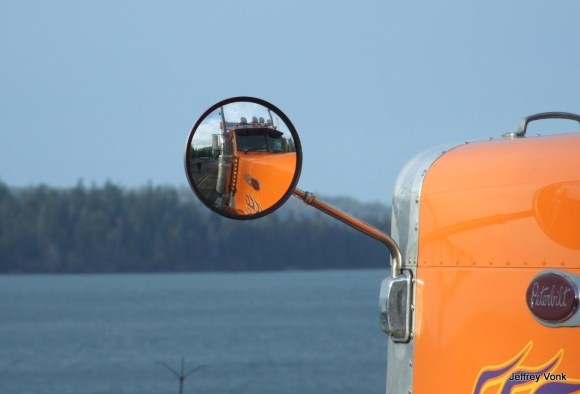
1. The title of your book implies you wanted to break free from an average sort of lifestyle in the Netherlands (explain how this came about). Didn’t it bring you difficulties to keep on living in the country you are born in?
Indeed, the first book in the Good to Go series, called Breaking Free, gives the idea that things weren’t running smoothly back home. You have to know however, that for some I had the perfect life; a nice house in a decent neighborhood, good friends, a pleasant job with a bright prospect towards a successful career, at least for middle-class standards (which was already something, coming from a working-class family). But something inside of me just didn’t want to settle for that. Being bound to a mortgage when there is so much beauty around never seemed logical to me, neither getting married to your second-choice. And don’t get me wrong, I was never too lazy to work or something, in fact people who know me acknowledge I am a hard worker. I suppose I am not the type of guy that follows the traditions closely. Thus, in order to escape my life from becoming a drag, as I had seen happening all around me, I decided I wasn’t going to allow myself to end up like that.


So I didn’t flee, nor did I run away from a haunting past, as some like to speculate. No, I just needed to spread my wings and break free from the insecure people around me, that tried their best to keep me, but… they tried in vain. Although I had already made some trips, in this book you can read how I really went into the world as a boy, and came out a man.
The second book in the series of Good To Go, called ‘Beyond the Equator’, presents a more seasoned traveler. I have grown in experiences and in years, but I still take the same amount of risks as I go about countries, back at pushing things to the limit at times. Because there is only one place where I get homesick, and that is when I am at home in the Netherlands. At those moments, I long to hit the road again, to feel the warmth on my face again, to hear languages that don’t make any sense and to search for a place to sleep, where no single day is the same. Experiencing new things and facing challenges is where I feel alive.
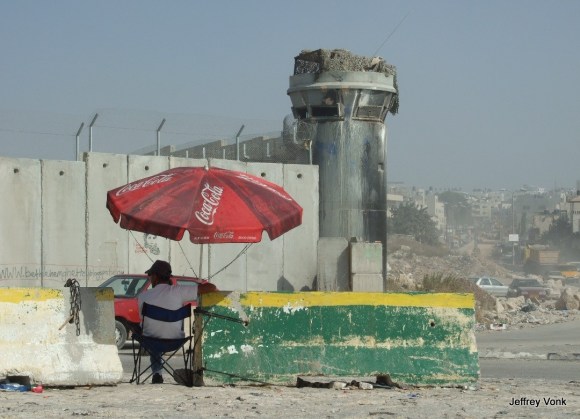

2. Is traveling adventure for you? What do you define as adventure? What sort of feelings does experiencing an adventure arouses in you and are you able to enjoy it while experiencing adventure while it happens?
These are three questions that can be seen entirely separate from each other. Let me start by saying that traveling in itself doesn’t have to be an adventure, at all. In fact, it can be frustrating and even downright boring. It depends on the perspective, some fly across the world every week for their work, others save up all their life for that one moment to board an airplane. That is a major difference. And standing in endless traffic jams or experiencing serious delay on trains doesn’t get my blood pumping from excitement. To define adventure you don’t need to think about climbing Mount Everest or driving a motorcycle across the South American continent, although from experience I can say that would also qualify as one, yet not these extremes per se.
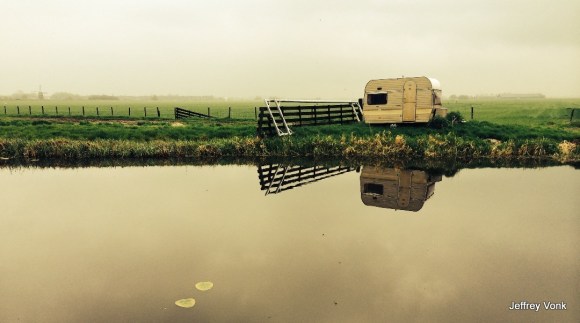

How about meeting a stranger in the streets while traveling in a foreign country, and heeding to the invitation to come home with them to see the house and meet the family, and perhaps, eating things unknown to you? Or to walk around ancient ruins of distant cultures in either a scorching desert or the humid jungle, or being completely by yourself in a remote place, or even a very crowded place for that matter, or having an encounter with a certain animal you never expected to come across? Adventure can be in unexpected corners and in the smallest things, but that would be different for each one individually.
At times, going on an adventure is far from fun. But it is interesting, as some unwritten iota in the universe, that the bigger the adventure, the bigger the hardships, discomfort, struggles, risk, chance of injury, sleep deprivation, and a hundred things more. Somehow they seem to coincide. There is no greater joy than standing on that mountain peak after days (and nights) of heavy breathing, due to the altitude. Or that majestic sense of independence while being away from home for months, not having to work, being self-reliant, absorbing the dust particles of the road and fragrances of spices in far away places. You have to realize, that there is a thin line between enjoying your backpacking trip and enduring certain weather conditions such as the bitter cold you have to face at times. It is all willpower (for example) it depends on how much you really want to be on the other side of that river, or, how far are you willing to go to get to that remote landmark that you saw on TV? Is it worth risking your health for? In the end, the biggest adventure comes, when you realize that you are growing as a person, by the uninfluenced choices you make.

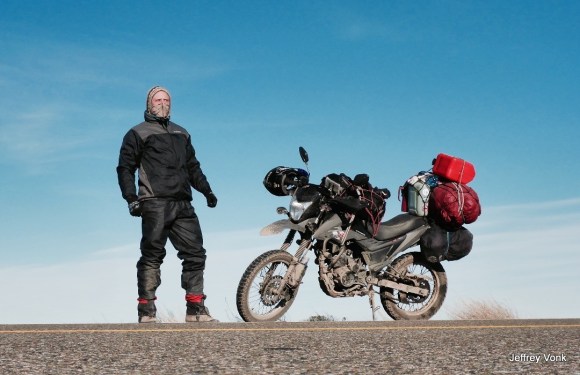
3. Do you think a lifestyle of adventure has changed you?
In a world where we live our lives staring at little screens in our hands, I count myself lucky to be from an era without too much technology. My childhood still allowed me to explore my surroundings, scouting the woods and such. We learned how to entertain ourselves, at least I did, doing so with an unquenchable curiosity. Being adventurous is something you can’t learn as an adult in my opinion, you either have it or you don’t. In that sense it hasn’t changed me because I feel it has always been a (big) part of me. However, this lifestyle has definitely altered my life, and I myself am changed because of it. Being on the road for months, or for years, doesn’t exactly stimulate the family-life so to speak, which can be a miss at certain times, but a relief at other times, hanging on some steep cliff in the mountains at least I won’t let anyone behind when things go wrong.
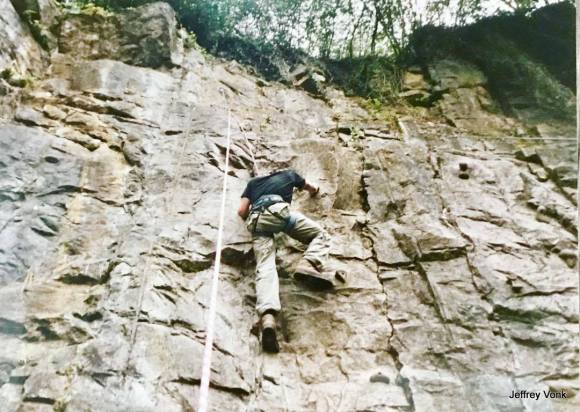
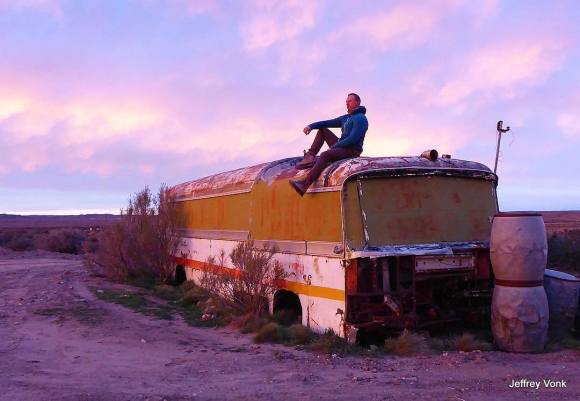

4. What do you think is the biggest fear that keep people away from what they dream of?
That is a good question. I think the biggest fear for most people is fear itself. You always fear what you don’t know. Fear of failure, fear of rejection, fear of others, fear of your own capability. It holds people back from their true nature, since it is our basic instinct to want to survive and provide for ourselves (and loved ones). Think about the surplus of insurance companies, they constantly push an agenda of “What if this, or what if that’ and the majority falls for it. Furthermore, chasing your dreams involves determination, but also risk and sometimes sacrifices. People are either used and falsely secure and comfortable with a certain lifestyle or afraid to loose their status in society (think about what type of house is he/she living in and what type of car does he/she drive?). “How am I viewed by other people?” remains a scary thought for most. Though this is the case, folks of an older age have the wisdom: regretting things they did not do in their lives greatly outweighs the things they did do. And that is an encouragement we can all learn from.
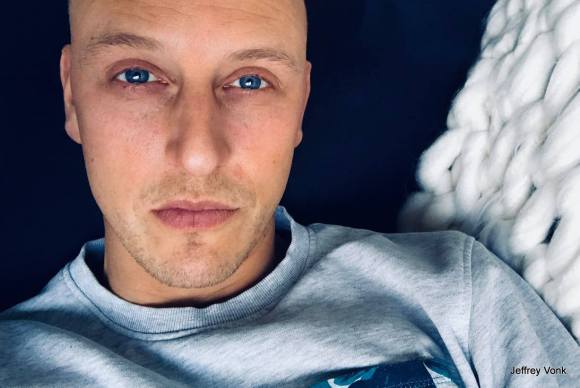


7 replies on “Interview: World Traveler Jeffrey”
Sent from Yahoo Mail on Android
LikeLike
I’m not sure whether I understand, Rodney?!
LikeLike
Hello Cindy and Jeffrey. Awesome interview – thank you for sharing. Some really great questions and answers there. Well done. I really enjoyed reading it and checking out the photos.
One thing I would like to ask with reference to the old people being sorry they did not do more things. I hear this a lot and I wonder if that is just a for of reminiscing. They forget that the choices the they did make may very well have made their latter years much more secure and comfortable as opposed to had they travelled a lit more and not paid off their mortgage/house built up a retirement fund and thus in their later years have to suffer in rental houses with high rents and not much money to go around but they have had many wonderful trips. What do you think?
LikeLike
Hi again, nice to hear (read) from you : )
I think so too. The generation of my parents had it better then their parents, who simply had to feed mouths. There was not such a frivolous thing as holiday, let alone traveling!
I suspect, people on their deathbed may say things like ‘I wish I had traveled more’ which may indicate they regret that they did not travel more. But that doesn’t mean they did not travel at all, if they so wished.
People always need to make choices. And each choice has a downside. Traveling means no home base, no house, no security. Not many people choose this option. So, yes, the statement ‘I wish I had traveled more’ means to let go of a lot of things. And would they be able to do so, would they really want to?
Regards Cindy
LikeLiked by 1 person
[…] Jeffrey, a Dutch guy on a motorbike who I met at the border with Chile and Argentina. His extensive travels amde him write two books. I ask him about what adventure means to him. […]
LikeLike
The essence of me writing that particular part about old folks, is that we get many chances in life, and often we don’t realize it, thus, missing out on certain things. A lot will choose security over risk and I understand that very well – as it takes a certain mentality to leave behind what is familiar. In any case, if one door closes, another will be opened, yet sometimes it is you who has to press the doorknob…
LikeLike
Hi Jeffrey,
Indeed. I agree with you. The difficulty in the very first part is: to decide.
To see chances perhaps.
Following a certain trail will lead automatically to chances accordingly.
It takes courage to choose a different lifestyle out of the ordinary where security is part of.
Security is false, in my opinion, it’s not really there. But to choose deliberately for less takes courage. Or common sense.
LikeLike